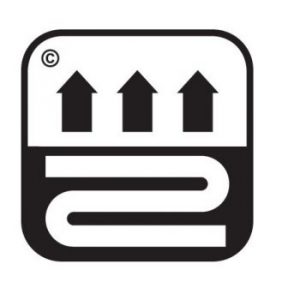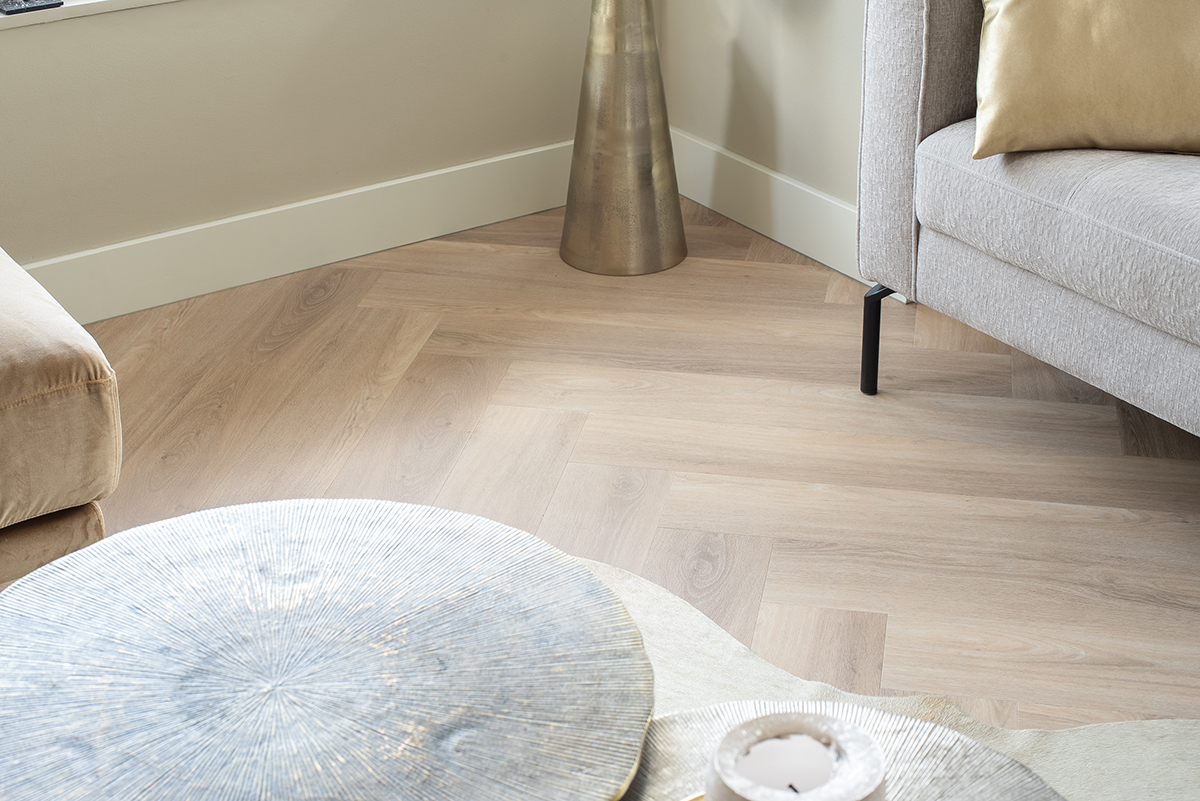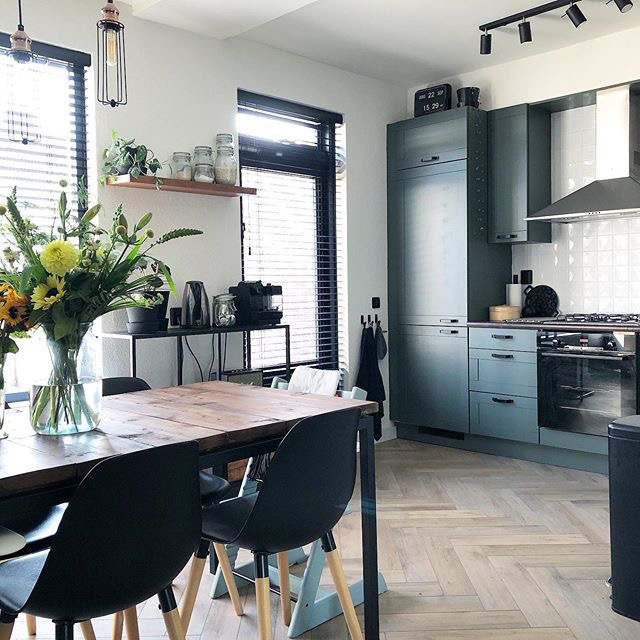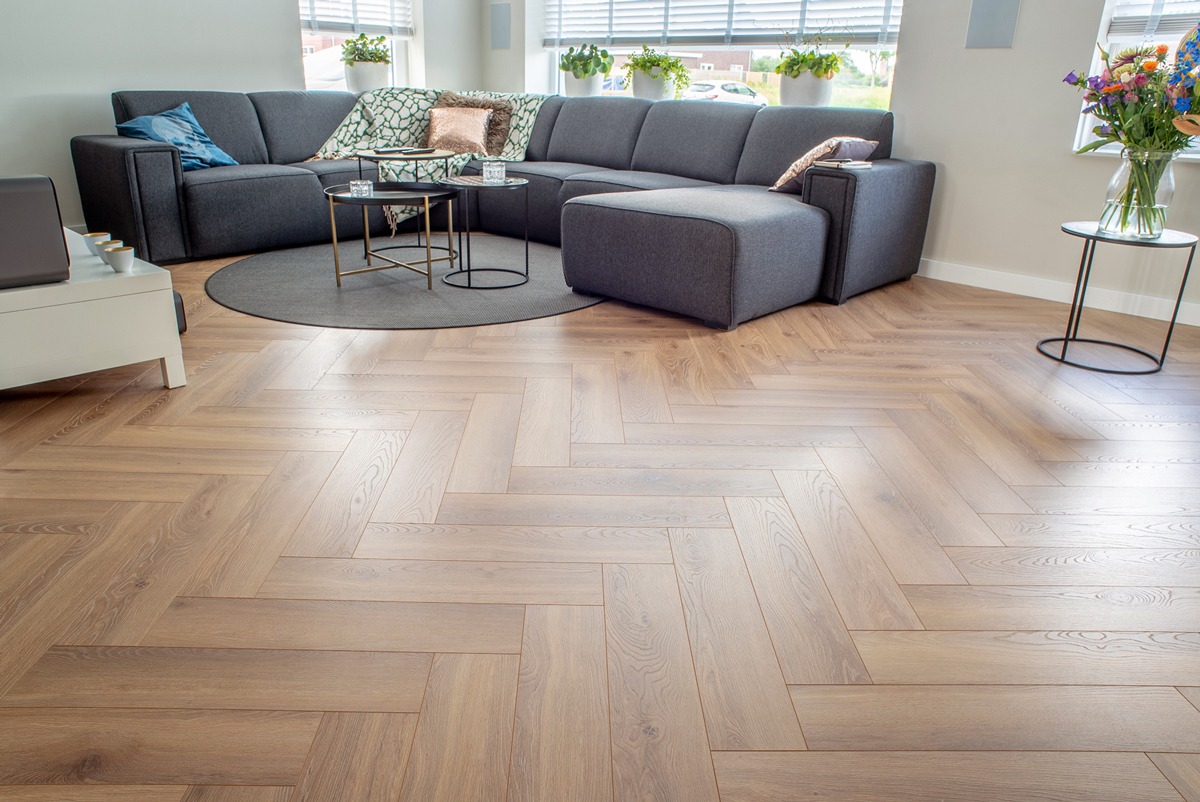
What are the differences between laminate and vinyl flooring? When searching for flooring options, it can be difficult to choose from the vast array of choices available. Do you love the look of a beautiful wooden floor? Or would you prefer a floor that is easy to maintain and resembles oak, like a special laminate floor? Perhaps you’re looking for a 100% water-resistant floor?
To help make your decision easier, we have created informative FloerTube videos. In this video, Guido lists the five main differences between laminate and vinyl flooring. If you find the video helpful, please subscribe to our channel for more FloerTube videos.
The difference between Laminate and Vinyl flooring
HDF VS PVC
When it comes to laminate and vinyl flooring, the key difference lies in the materials used. Laminate flooring is made up of various layers that are pressed onto a High-density fiberboard, or HDF, which is a hard and compressed wood fiberboard. Vinyl flooring, on the other hand, is composed of plastic and is abbreviated as PVC, or PolyVinylChloride.
Laminate floors come in solid planks and are easy to install thanks to their convenient click connection. On the other hand, adhesive vinyl floors require gluing to the substrate and are flexible and soft. If you’re looking for a more rigid option, Rigid Click Vinyl floors are made from the same material as slab vinyl floors but have a “rigid core” stone mineral interlayer that makes them less flexible.
 Underfloor heating
Underfloor heating
We have previously discussed which flooring types are suitable for underfloor heating. In summary, laminate is definitely a suitable option. While wood is not an ideal heat conductor, it can still work. However, for optimal efficiency, vinyl is the best option as it conducts heat better, resulting in faster delivery of warmth from the underfloor heating system. This is particularly advantageous when using underfloor heating as your main heating source. Moreover, vinyl can feel warm to the touch even without underfloor heating, ensuring you never have to suffer from cold feet again!
Anti-scratch or wear coating
When you have children and pets in the house, it is important to have a child-friendly floor that is resistant to scratches. All vinyl and laminate floors are suitable for intensive domestic use, but there is a difference in scratch resistance. Laminate floors are finished with a hard anti-scratch coating, but they are not fully scratch-resistant. Vinyl floors are often marketed as being even more scratch-resistant than laminate, but this is not entirely true. While vinyl floors do have a strong wear layer of 0.55 mm with a PU coating on top, they are slightly more sensitive to scratches compared to laminate.
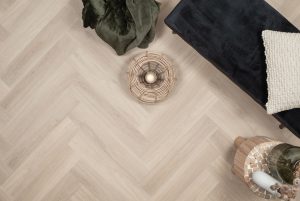
An additional advantage of using PU coating and vinyl wear layer in flooring is that they can be easily touched up with a polisher, which makes it possible to repair any scratches. However, scratches on laminate flooring are almost impossible to create. If you do succeed in creating scratches, unfortunately, there is no local repair option available like there is with vinyl. The only solution is to replace the laminate plank.
Walking sounds
Laminate floors are notorious for their ticking impact sound, particularly when walking with heeled shoes. However, there is a solution to this problem: the non-contact underlay. By dampening the impact sound, this underlay creates a more solid walking sound. In a FloerTube episode, Guido demonstrates the difference. In contrast, a vinyl floor has a very soft walking sound due to the material it is made of.
No noise? The Non-Contact underlay!
100% waterproof, a few hours or always?
One major difference between laminate and vinyl flooring is their water resistance. Vinyl is made of plastic and is therefore 100% water-resistant. However, when installing vinyl in damp rooms like bathrooms, make sure to use water-resistant vinyl glue. Laminate, on the other hand, is made of wood fiberboard and is less resistant to water. A little splashing water in the kitchen is not a problem, but prolonged exposure to moisture can cause the laminate to absorb water and the fiberboard to expand. Fortunately, some laminate floors are now labeled as waterproof, meaning they have a water-resistant coating, including in the groove. These floors, such as the Country House Laminate and the City Laminate, can withstand a small puddle for up to 4 hours without damage.
Thickness
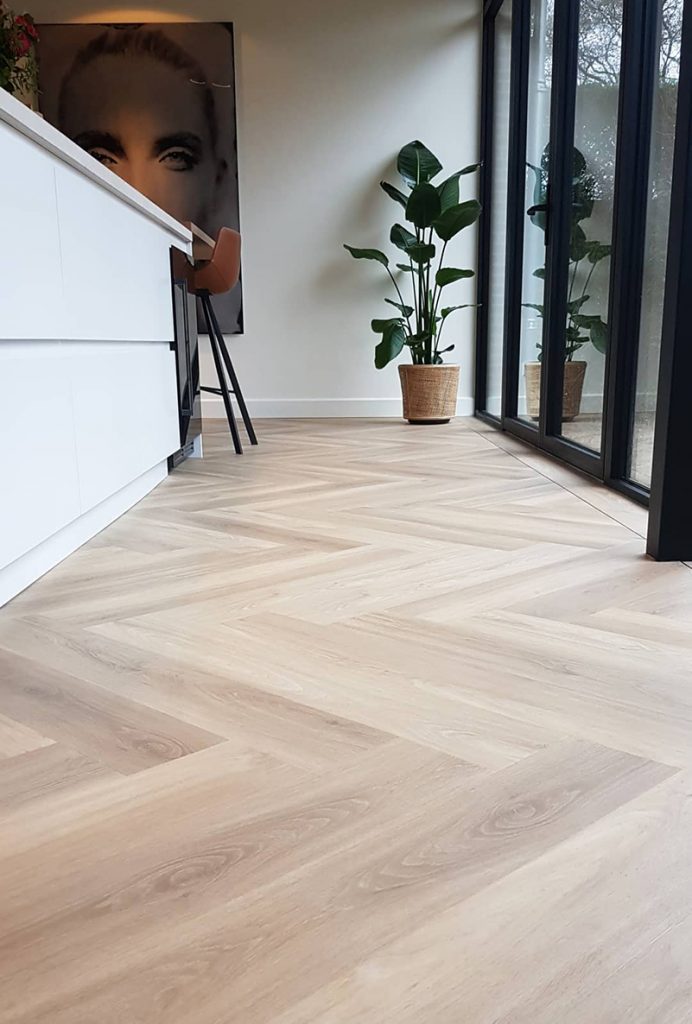
One difference between vinyl and laminate flooring is the thickness of the boards. Our Vinyl floors are 0.25 cm thick. Floer Rigid Click Vinyl has an extra stone mineral intermediate layer to produce a solid click connection and make the floors more stable. Therefore, these floors are 0.5 cm thick. Floer’s laminate floors have a thickness ranging from 0.8 cm to 1.2 cm. It’s worth noting that a thicker laminate floor produces a more solid walking sound!
Click-connection & gluing
Want to lay a floor yourself? No problem! Thanks to click joints, it’s possible, which is one of the reasons why laminate floors are so popular. Now, with Herringbone Rigid Click Vinyl flooring, you can also easily install vinyl floors yourself. The click joints vary, and at Floer, we offer three different types: Variclick, Fastclick, and Unidrop.
Adhesive vinyl floors require gluing to the substrate, and a completely level substrate is required for the installation of soft slab vinyl flooring. Even in a newly built house, the substrate may need to be treated with a levelling compound. Therefore, installing an adhesive vinyl floor requires the expertise of an experienced handyman. On the other hand, Rigid Click Vinyl floors and laminate floors are easy to lay yourself thanks to the click connections. Compared to adhesive vinyl floors, the costs are often lower because the surface, if sufficiently flat, does not need to be leveled. You can lay the floor yourself, making it ideal for the do-it-yourselfer! Even without any DIY experience, our handy videos and installation instructions make it easy to do it yourself.
Maintenance of Laminate & Vinyl floors
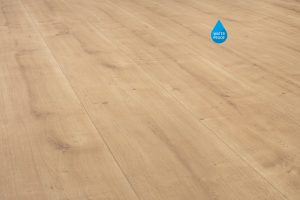
Cleaning and maintaining a laminate or vinyl floor is a fairly straightforward process. However, it is especially important to know what not to do, as using the wrong cleaning products can cause damage to the floor. Additionally, laminate floors can be damaged if too much water is used during cleaning. Water can cause damage to laminate flooring, so prevention is key because it cannot be easily fixed once it occurs. Avoid getting the floor wet and do not leave moisture on the floor for extended periods of time. Vinyl floors, on the other hand, are not affected by water. Whether you choose a Rigid Click Vinyl or Dryback vinyl floor, water will not be an issue for these floors.
Choosing the right cleaning products is crucial to prevent damage to the top layer of the floor. It is important to ensure proper acclimation of the flooring before installation to avoid problems in the future.
Vinyl Laminate
Rigid Click Vinyl is sometimes mistakenly referred to as Vinyl laminate. This is because Rigid Click Vinyl floors combine the benefits of both vinyl flooring and a convenient click-connection system. Therefore, if you come across the term Vinyl Laminate or hear someone use it, it likely refers to a Rigid Click Vinyl floor.
Did you know?
Laminate flooring has been around longer than vinyl flooring, but vinyl has made quite a splash in recent years. At Floer, we offer several vinyl flooring collections in addition to laminate, such as Herringbone Vinyl flooring and Tile Rigid Click Vinyl flooring, both available in beautiful patterns and with tactile structures. We hope this has helped you understand the differences between laminate and vinyl flooring. For more FloerTube videos, be sure to watch them all!
In addition to vinyl and laminate floors, Oak Wood floors are also available on the website. If you prefer vinyl floors, you can choose between Rigid Click Vinyl, Herringbone Vinyl, and wide Whalebone Vinyl floors. Laminate floors are also available in Wide Whalebone Laminate and Herringbone Laminate, among others. Have you already made your choice? Then, you can either order a sample or visit your nearest dealer.

